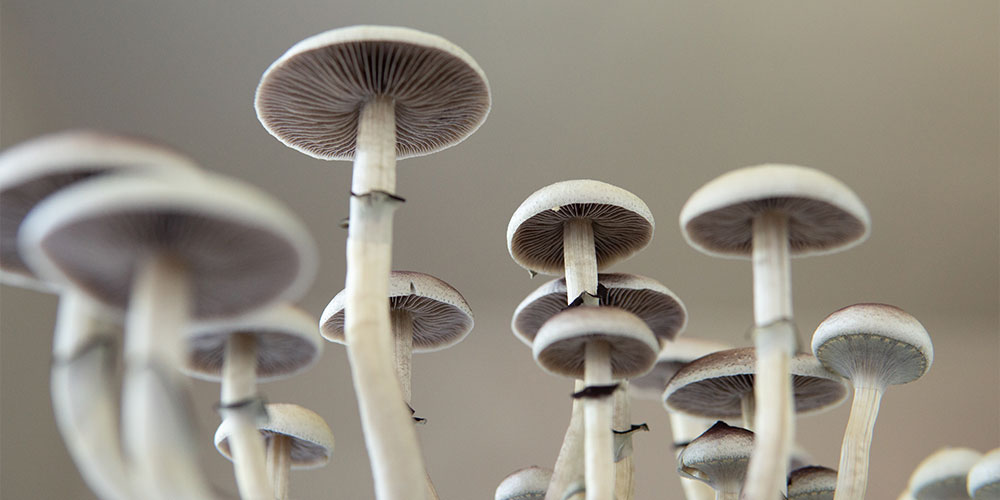By Martha Lee Anne Laret, MS, RDN, LDN
As a child, mushrooms were mysterious, though mostly charming, as I spent many summer days kicking them over just after a light rain. Unfortunately, in high school, they lost their charm and appeal as fast as you can say “fungus.” And while they returned to me in adulthood, credit to their delicious umami flavor when mixed with a cream sauce, poured over beef stroganoff, or added to an omelet, I have yet to have my first cup of mushroom coffee. Yes, you read that right. Mushroom coffee, smoothies, and supplements have gone mainstream.
While the West is just catching on to the health benefits of mushrooms, they have a rich history and use in ancient Chinese, Japanese, and Eastern European medicine. Long known for their impressive list of health benefits (from reducing inflammation and boosting immunity to preventing metastasis of some cancers) and positive impact on multiple body systems, mushrooms have been sipped, eaten, and taken in powdered forms for hundreds of years!
How can so much power be packed in something so small? The health benefits can be attributed to three important compounds in the mushroom: polysaccharides (or long-chained sugars), terpenoids, and proteins. Through cellular communication, increased expression of our immune genes, and an overall stimulating and strengthening impact on the immune system, these compounds cover some serious ground!
REISHI (Ganoderma lucidum)
Referred to as the “mushroom of immortality,” Reishi is an immune-boosting powerhouse, often used as an adjuvant in various cancer treatments (turkey tail and Shitake mushrooms are also shown to have anticancer benefits). Reishi also functions as an adaptogen, helping the body “adapt” to biological, chemical, and physical stressors, mitigating stress and fatigue when worn down, stressed out, or sick.
LION’S MANE (Hericium erinaceus)
While rich in phenols, flavonoids, and ascorbic acids, making Lion’s Mane a rich source of free radical-scavenging antioxidants, Lion’s Mane is best known for its mental health and neurological benefits as it contains compounds that protect and promote the growth of neurons! Nicknamed “the smart mushroom,” clinical studies have demonstrated their positive impact on anxiety, depression, and general cognitive function, from neuroprotective activity against Parkinson’s and ischemic strokes to reducing general brain fog.
TURKEY TAIL, SHITAKE, AND OYSTER
While easily found at your grocery store or local farmer’s market, turkey tale mushrooms have some of the highest beta-glucan content, making them great for protecting the immune system. Shitake are known for being anti-inflammatory and have clinically been shown to reduce clinical markers of inflammation. Like Maitake, Oyster mushrooms act as a natural statin, helping to lower cholesterol naturally and maintain healthy levels of blood triglycerides.
MAITAKE (Grifola frondose)
Best known for a compound called D-fraction, Maitake is another mushroom with powerful anticancer benefits. Additional research has linked Maitake intake to reduced blood pressure, increased insulin sensitivity, and reduced inflammation, making them a go-to for cardiovascular health.
How much should we be eating? A literature review of studies between 1966-2020 found that as little as two medium mushrooms per day could reduce cancer risk by 45%. As for cognitive benefits, two cups per week did the trick, though even one cup per week had a positive impact. Eating about 1 cup (or 3 ounces) of gray and yellow oyster, Shitake, or Maitake mushrooms provides a rich source of health-benefiting antioxidants.
Medicinal mushrooms show real promise in reducing fatigue, supporting and strengthening the immune system, reducing inflammation, and improving general resilience against sickness, not to mention their host of benefits to many body systems. And while they are powerful, I encourage you not to go overboard!
Try a cup of Reishi or Lion’s Mane coffee if you enjoy it. Keep Shitake or Oyster mushrooms for salad toppings, or add Maitake and other gourmet mushrooms to sauces, creams, and gravies to pair with pasta, mashed potatoes, and an array of protein dishes for savory flavor (and those health-boosting perks!).
SHOULD YOU SUPPLEMENT?
Many mushrooms like Reishi and Lion’s Mane are available in encapsulated forms for more concentrated doses, with 1-2 grams (or 1000-2000mcg) being a recommended maintenance dose for Lion’s Mane and 3g a therapeutic dosage. Studies have used between 1.5-9 grams of Reishi mushroom for benefits (1 gram of dried supplement is about nine fresh mushrooms). However, if choosing to use supplements, it is important to work with your healthcare provider as dietary supplements may interact with other medications, may need tailoring to your personal health plan, and are not monitored by the FDA for safety or effectiveness!
REMEMBER
When adding in “super” foods, medicinal foods, or foods touted for their supreme nutrition, a solid foundation of good sleep, stress management, routine healthcare access, gentle movement, and eating enough consistently and without extremes provides the sturdiest base we need to optimize our health through these wonder foods!
For personalized guidance, reach out to the Registered Dietitians at Memphis Nutrition Group. Visit us at MemphisNutritionGroup.com.
By Martha Lee Anne Laret, MS, RDN, LDN










